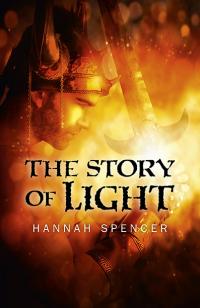
 Many people will have
heard or sung parts of Handel’s Messiah at Christmas, but few of them, I
suspect, will be familiar with the story of rejection and rehabilitation that
lies behind its creation.
Many people will have
heard or sung parts of Handel’s Messiah at Christmas, but few of them, I
suspect, will be familiar with the story of rejection and rehabilitation that
lies behind its creation.
Handel was, in every sense of the word, a celebrity. He landed on our shores in 1711, after living in Italy for three years and familiarising himself with every aspect of Italian opera, just as the aristocratic taste for all things Italian was in full flow. What’s more, he arrived shortly after Parliament had invited an obscure German elector to become our future king; the fact that Georg Ludvig couldn’t speak English and had little interest in running the country were seen as advantages by those who ruled. What mattered was that he was a Protestant and that his great, great grandmother had been James I‘s sister.
With royal backing, Handel became director of our only opera house and brought music in London up to a standard that rivalled Paris and Vienna. He did this by importing talent: violinists from Germany, horn players from Romania, singers and librettists from Italy. He became an entrepreneur just at a time when this new type of animal was busy staking out London’s playhouses and pleasure gardens.
But after years of success Handel’s Italian singers, who he regularly had rows with, turned against him. In fashionable society he became ‘yesterday’s man’ in part because he was inadvertently caught up in the game of hate being played out by George II and his son, Prince Frederick. It was a Hanoverian tradition for elder sons to hate their fathers and Frederick was never able to forgive his parents for deserting him as a child when they moved with George I to Britain. Handel was kicked out of the opera house to make way for a rival company sponsored by the Prince of Wales. In 1737, due to overwork, he had a paralytic fit.
As he lay in his bed, unable to speak, you could be forgiven for thinking he was finished. Yet he resurrected himself: being the entrepreneur he was, he created a new genre of music – the dramatic oratorio sung in English – which appealed to a new audience of successful businessmen and professionals. His oratorios inspired choirs to spring up across Britain and in 1741, at the age of 56, he wrote the single, most enduring piece of music ever to have been written in English. Messiah was premiered, not in London but in Dublin. Laden with debt and sick of the constant harping of the news sheets, he spent ten happy months in retreat there. In Dublin, he felt, ‘good conversation and wit have yet to be banished from polite society.’
Intrigued by the majestic figure of Handel, and the dramas in his life, I decided to write a novel which would try to capture the circumstances surrounding the creation of the most popular of his oratorios. The focus of the book is not actually Handel; rather it tells the story of a young singer, Harry Walsh, who falls in love with Handel’s assistant, Peter. The relationship sours just as Harry’s fortunes go into spectacular reverse and he loses all his money in an unwise speculation. It's as much about a young man exploring his sexuality as it is about the rise and fall of the Italian opera. There are plenty of rather heavy biographies of Handel, listing his many compositions. This isn’t one of them. It’s a light-hearted romp through the 1730s and ‘40s, when musical tastes were changing. But it shows, I hope, how a German émigré arrived on these shores just as colonialism, capitalism and cosmopolitanism were taking off, and summed up for his adopted land, better than anyone, what it meant to be British. I don’t pretend to be an expert on music and you most certainly don’t have to be one to enjoy the book.
This article was first published in The Writer's Wheel Issue 4
Buy Here
Categories:
0 comments on this article







